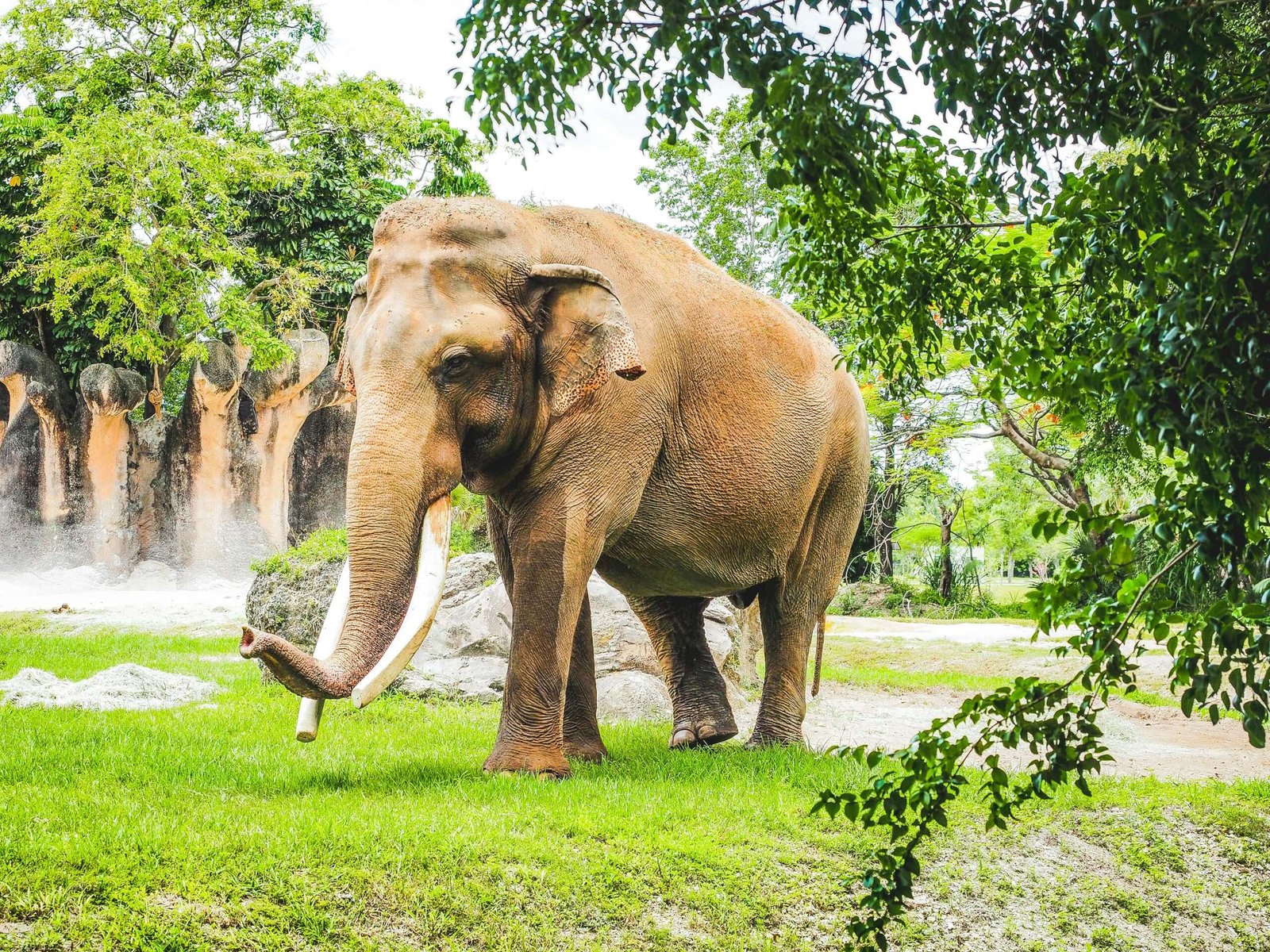Asia Guide: Ethical Wildlife Tourism in Asia

Are you dreaming of spotting a Bengal tiger in India or observing orangutans in Borneo?
If you’re passionate about wildlife and planning a trip to Asia, it’s essential to ensure your adventure is both exciting and ethical. Ethical wildlife tourism in Asia means enjoying these incredible experiences while respecting and protecting wildlife and their habitats. So, how can you have an unforgettable adventure without causing harm? Let’s dive in!
Table of Contents
Understanding Ethical Wildlife Tourism
First things first, what exactly is ethical wildlife tourism? Simply put, it’s all about experiencing wildlife in a way that is respectful and non-intrusive. It involves supporting conservation efforts, respecting the animals and their habitats, and choosing tour operators and sanctuaries that prioritize animal welfare.
Why Does It Matter?
Unethical practices, such as animal performances, riding elephants, or visiting zoos with poor conditions, can cause significant harm to animals. They can lead to physical and psychological distress for the animals involved. Ethical wildlife tourism ensures that your love for animals doesn’t contribute to their suffering. Plus, it supports local communities and conservation projects, which is a win-win!
Top Destinations for Ethical Wildlife Tourism in Asia
Now, let’s explore some fantastic destinations in Asia where you can enjoy ethical wildlife experiences.
1. India – Home of the Bengal Tiger
India is renowned for its rich biodiversity and is one of the best places to see the majestic Bengal tiger in the wild. National parks like Ranthambore, Bandhavgarh, and Kanha are fantastic options.
Tips for Visiting:
- Choose responsible tour operators who follow strict guidelines.
- Avoid disturbing the animals. Remember, you’re in their home.
- Visit during off-peak times to reduce your impact.

2. Borneo – The Orangutan Sanctuary
Borneo is a haven for wildlife enthusiasts, particularly those keen on seeing orangutans. The Sepilok Orangutan Rehabilitation Centre in Sabah, Malaysia, is a must-visit.
Recommendations:
- Support rehabilitation centers that focus on releasing animals back into the wild.
- Don’t feed or touch the animals. It’s for their safety and yours.
- Consider volunteering at a sanctuary to contribute directly to conservation efforts.

3. Thailand – Elephant Nature Park
Thailand is famous for its elephants, but not all attractions are ethical. The Elephant Nature Park in Chiang Mai is a sanctuary for rescued elephants.
How to Engage Responsibly:
- Avoid places that offer elephant rides or shows.
- Look for sanctuaries that allow elephants to roam freely.
- Participate in educational programs to learn more about elephant conservation.

How to Choose Ethical Tour Operators
Choosing the right tour operator is crucial for ensuring your wildlife experience is ethical. Here’s what to look for:
Certifications and Accreditations
Look for operators with certifications from recognized organizations like the Global Sustainable Tourism Council (GSTC) or the World Wildlife Fund (WWF). These certifications indicate that the operator adheres to high standards of animal welfare and environmental conservation.
Transparent Practices
Ethical tour operators are transparent about their practices. They’ll provide information on how they protect wildlife, support conservation, and ensure the welfare of the animals. Don’t hesitate to ask questions!
Positive Reviews
Check online reviews and ratings. Previous travelers can provide insights into their experiences. Look for feedback that mentions ethical practices and positive interactions with wildlife.
Supporting Local Communities
Ethical wildlife tourism isn’t just about the animals; it’s also about supporting local communities. Many wildlife areas are home to indigenous communities whose livelihoods depend on tourism.
Community-Based Tourism
Engage in community-based tourism initiatives that directly benefit local people. This could involve staying in locally owned accommodations, buying handicrafts, or participating in cultural experiences.
Educational Programs
Participate in educational programs that teach you about local cultures and conservation efforts. These programs often involve community members, providing them with a source of income and you with a richer experience.
Practical Tips for Ethical Wildlife Tourism
So, you’re ready to embark on your ethical wildlife adventure? Here are some practical tips to ensure you’re traveling responsibly:
Do Your Research
Before you go, research the places you plan to visit. Look for information on their conservation efforts, animal welfare practices, and community support. Websites, travel forums, and conservation organizations can be valuable resources.
Pack Responsibly
Pack eco-friendly products to minimize your environmental impact. Reusable water bottles, biodegradable toiletries, and a good pair of binoculars for wildlife watching are great additions to your travel gear.
Respect Wildlife
- Keep a safe distance from animals.
- Avoid making loud noises or sudden movements.
- Never feed or try to touch wild animals.
Follow the Rules
Adhere to the guidelines set by parks and reserves. They’re there to protect you and the wildlife. Listen to your guides and respect the natural environment.
The Role of Conservation Projects
Supporting conservation projects is a fantastic way to contribute to wildlife protection. Many organizations in Asia are dedicated to preserving endangered species and their habitats. Here’s how you can help:
Volunteer Your Time
Volunteering with a conservation project can be incredibly rewarding. Whether it’s tracking wildlife, planting trees, or assisting with research, your efforts can make a significant impact.
Donate to Reputable Organizations
If you can’t volunteer, consider donating to reputable conservation organizations. Your financial support can help fund crucial projects and initiatives.
Spread Awareness
Use your voice to spread awareness about the importance of ethical wildlife tourism. Share your experiences on social media, write about them on your blog, or simply talk to friends and family. The more people know, the greater the impact.
Ethical Wildlife Sanctuaries in Asia
Apart from the popular destinations, there are numerous ethical wildlife sanctuaries across Asia. Here are a few worth mentioning:
Wildlife SOS, India
Wildlife SOS operates several rescue centers in India, including one for sloth bears and another for elephants. They focus on rescuing and rehabilitating animals from exploitative conditions.
Sun Bear Conservation Centre, Borneo
The Bornean Sun Bear Conservation Centre in Sabah, Malaysia, is dedicated to the conservation of the world’s smallest bear species. Visitors can learn about the challenges sun bears face and how they can help.
Free the Bears, Cambodia
Free the Bears works to protect vulnerable bear species across Asia, including the Asiatic black bear. Their sanctuary in Cambodia provides a safe haven for rescued bears.
Elephant Jungle Sanctuary, Thailand
At Pattaya Elephant Sanctuary their goal is to provide a caring home for elephants where they can live as naturally as possible and are respected by guests. They adhere to an ethical model, which means no chains or bullhooks, no riding or performances, and limited interaction with people.
Final Thoughts
Ethical wildlife tourism in Asia is a wonderful way to experience the continent’s incredible biodiversity while making a positive impact. By choosing responsible practices, supporting conservation efforts, and respecting wildlife, you can enjoy unforgettable adventures without causing harm. So, pack your bags, do your research, and get ready for an ethical wildlife adventure you’ll never forget! Safe and happy travels. 🌏🐘
Want to find more travel experiences? Give the rest of our blog a browse for inspiration.
FAQ: Ethical Wildlife Tourism
What is ethical wildlife tourism?
Ethical wildlife tourism involves engaging with wildlife in a way that is respectful, non-intrusive, and supportive of conservation efforts. It ensures the welfare of animals and their habitats while providing meaningful experiences for travelers.
How can I find ethical tour operators?
Look for certifications from organizations like the GSTC or WWF, check for transparent practices, and read reviews from previous travelers. Don’t be afraid to ask operators about their animal welfare and conservation policies.
Why should I avoid riding elephants?
Riding elephants often involves cruel training methods that cause significant physical and psychological harm. Instead, choose sanctuaries that prioritize the well-being of elephants and allow them to live naturally.
What are the benefits of ethical wildlife tourism?
Ethical wildlife tourism protects animals and their habitats, supports local communities, and promotes conservation efforts. It ensures that your travel experiences are both enjoyable and responsible.
How can I support conservation projects in Asia?
You can support conservation projects by volunteering your time, donating to reputable organizations, and spreading awareness about the importance of wildlife conservation.




